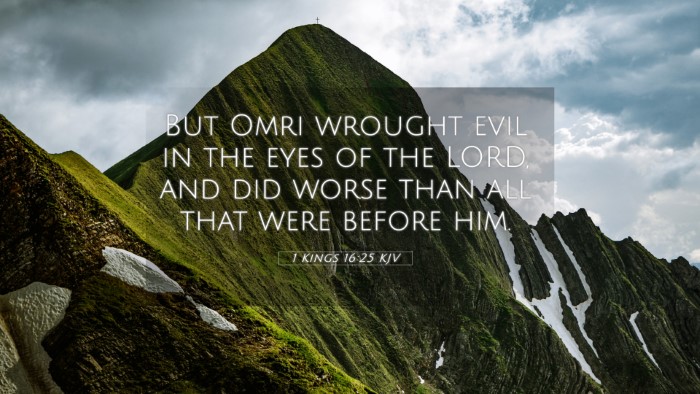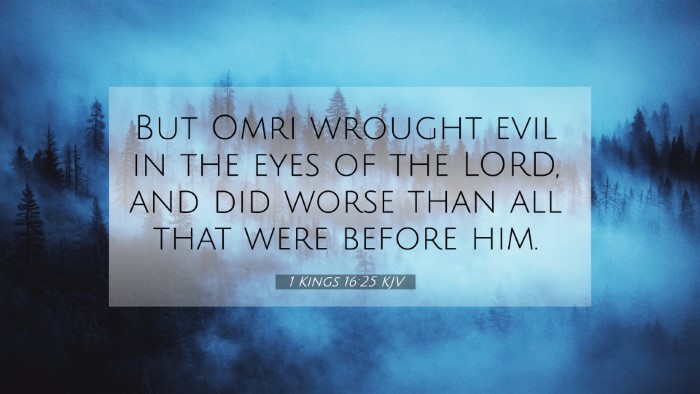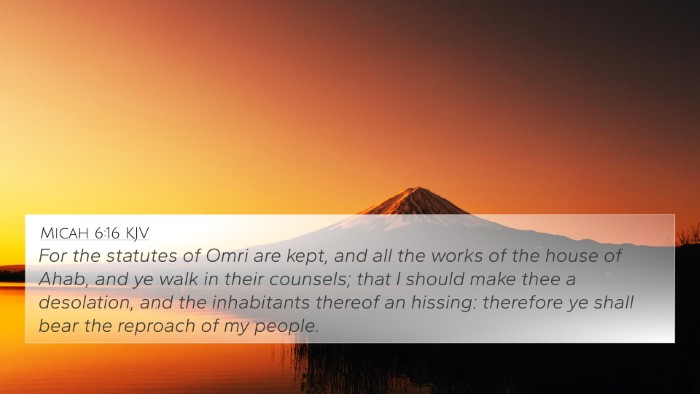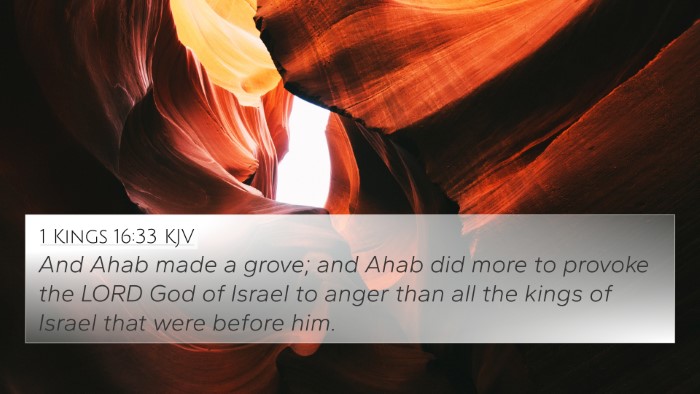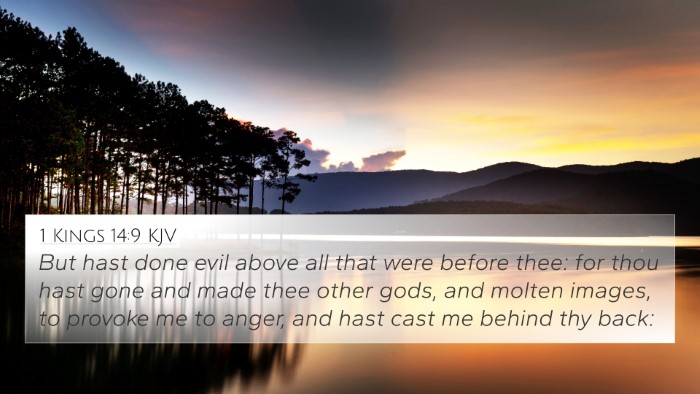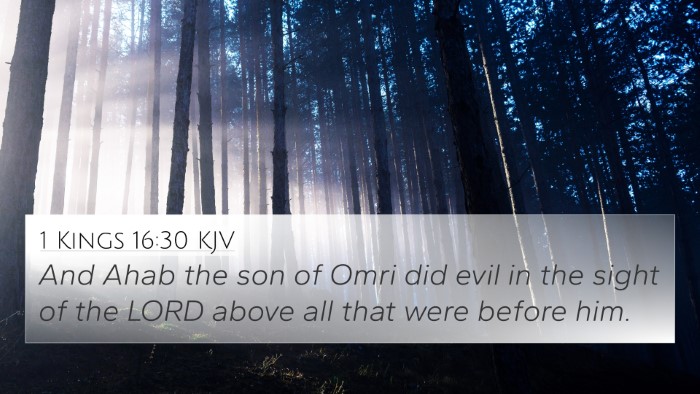Understanding 1 Kings 16:25
Verse Context: 1 Kings 16:25 states, "But Omri wrought evil in the eyes of the LORD, and did worse than all that were before him." This verse introduces Omri as a king of Israel who not only acted wickedly but exceeded the evil of his predecessors.
Commentary Insights
Matthew Henry: Henry notes that Omri's evil was marked by his foundation of a new capital, Samaria, which not only represented a political move but also paved the way for idolatry, particularly through the influence of his son, Ahab. His wickedness is noted as a significant downward shift for the nation.
Albert Barnes: Barnes emphasizes the phrase "wrought evil," highlighting that Omri's actions went beyond mere disobedience to a full embrace of practices contrary to God’s laws. His reign is described as setting a poor precedent that future kings would follow.
Adam Clarke: Clarke elaborates on Omri's military and political achievements but contrasts these with his spiritual failures, pointing out that despite his effectiveness as a ruler, his legacy was tainted with idolatry and leading Israel further away from God.
Thematic Connections
This verse can be cross-referenced with several others that share themes of disobedience, idolatry, and leadership failures:
- 1 Kings 21:25 - "But there was none like unto Ahab, which did sell himself to work wickedness in the sight of the LORD." This highlights the deepening corruption in Israel's monarchy.
- 2 Kings 17:21 - "For he rent Israel from the house of David; and they made Jeroboam the son of Nebat king." This addresses the split kingdom and ensuing evils.
- Micah 6:16 - "For the statutes of Omri are kept, and all the works of the house of Ahab." This shows how the sins of Omri had lasting impacts on Israel.
- Proverbs 14:34 - "Righteousness exalteth a nation: but sin is a reproach to any people." A principle that resonates with the consequences of Omri's leadership.
- Isaiah 9:16 - "For the leaders of this people cause them to err; and they that are led of them are destroyed." This echoes the responsibility of leaders like Omri.
- 2 Chronicles 28:1-3 - Parallels the idea of corrupt leadership leading a nation into sin.
- Numbers 14:18 - "The LORD is very long suffering, and of great mercy, forgiving iniquity and transgression." This represents the mercy amidst the evil outcomes of leaders like Omri.
- Jeremiah 23:1 - "Woe be unto the pastors that destroy and scatter the sheep of my pasture!" This aligns with the accountability of omri for leading people astray.
Implications of Omri’s Actions
Omri’s reign is important for understanding the trajectory of Israel’s leadership. His elevation of idolatry and disregard for God’s commands had profound effects on future generations.
Christian Application: Believers are reminded of the weight of leadership and the potential impact of their decisions on the faithful. The themes of this verse also guide the faithful to seek righteous leadership and the importance of personal integrity in their spiritual walks.
Cross-Referencing Biblical Texts
This verse not only stands alone but also opens a dialogue across the entirety of Scripture regarding the nature of sin, leadership responsibilities, and the repercussions of turning away from God’s ways.
Tools for Bible Cross-Referencing
Utilizing a bible concordance or a bible cross-reference guide can assist in further exploring these connections. Effective cross-reference bible studies can unveil intricate relationships between various scriptures, enriching one’s understanding of biblical themes and teachings.

